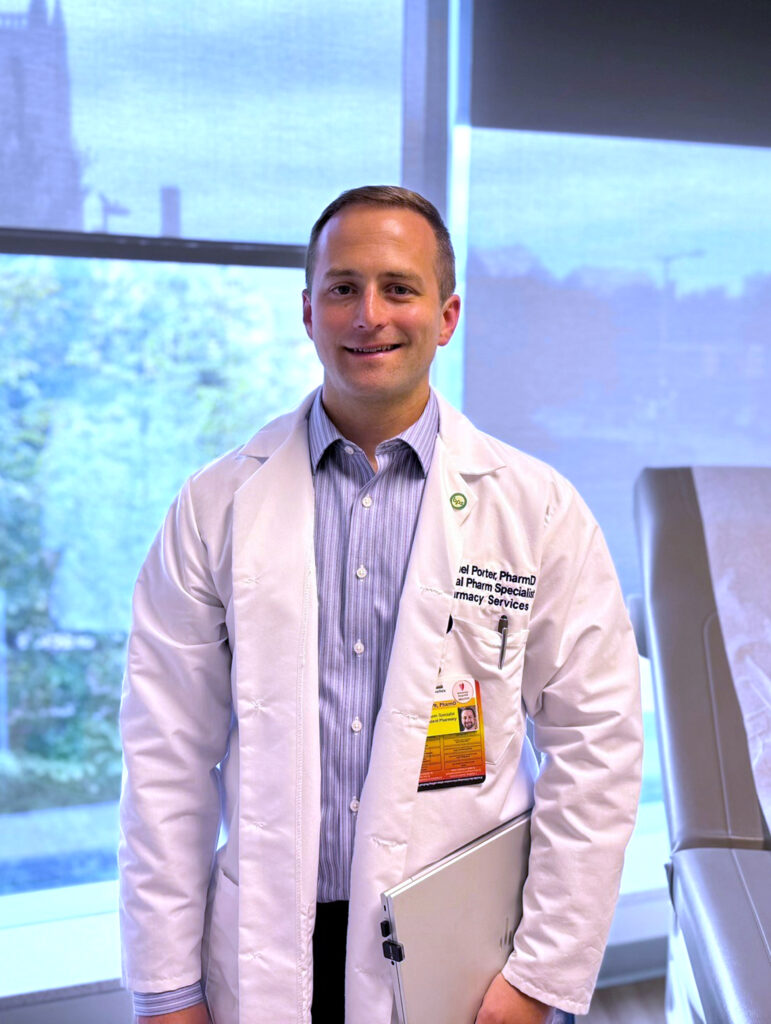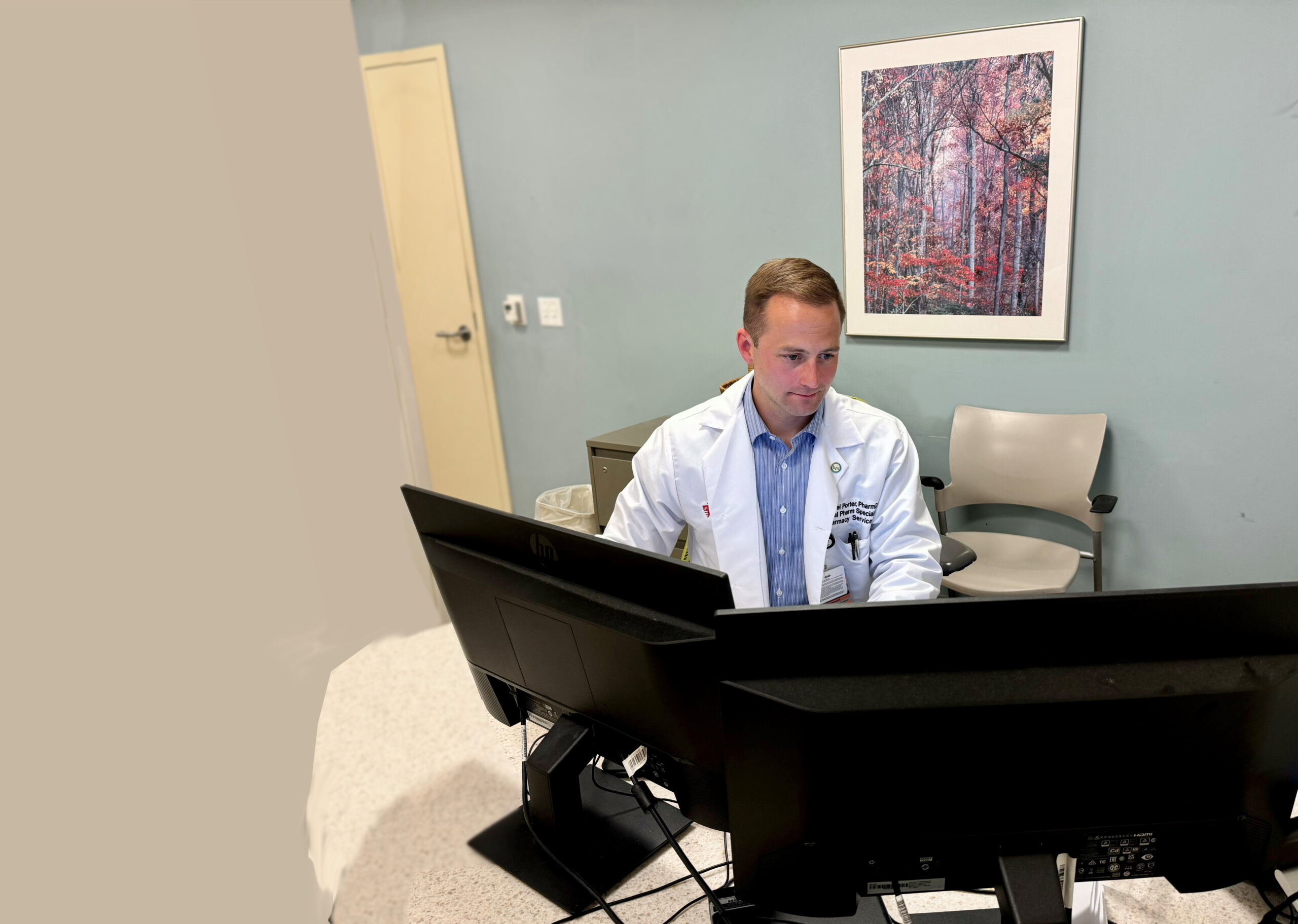


PHARMACISTS UP CLOSE
Samuel Porter, RPh, PharmD, BCOP
“A large part of the role we play as pharmacists is trying to bridge the gap between the medical community and the general public so that patients understand and trust their treatment plans.”
-Dr. Samuel Porter
Samuel Porter’s passion for health-system pharmacy has empowered him to embrace new opportunities to help patients throughout his career. His earlier experience in clinical pharmacy has prepared him to lean into his current role as a clinical oncology pharmacist at University Hospitals in Cleveland, OH.
“So many of the skills I learned over the course of my education and career have practical applications in my role today. I’ve worked in ICUs, community pharmacies, and now in oncology. In my current role, I’m using my experiences to establish best practices. I think it’s so important as a clinical pharmacist to constantly be building skills that we can apply across specialty areas.”
Samuel is part of an integrated care team – including oncologists, nurses, and nurse practitioners – that works together to ensure that patients are not only getting the treatments they need, but also that they understand them. His team is working together to establish education programs, with his time split between managing patient infusions, in-person and telemedicine consultations, and establishing education programs.
I’m going through every patient’s chart to see if there’s any recommendations I can make or any way I can improve their care.”
“On any given clinic day, we see about 30 patients. I’m going through every patient’s chart to see if there’s any recommendations I can make or any way I can improve their care. And I’m taking time with patients to ensure they’re educated on their medications.”
Despite all the roles he takes on, Samuel always takes time to really dive into his patients’ needs.

“When I first started in the malignant hematology clinic, there was a patient who had APL (Acute Promyelocytic Leukemia), which is treated with arsenic. Arsenic treatment can cause significant nausea, and when prescribing it, it’s important to monitor the patient for irregular heart rhythms. Some of the medicines we use to prevent nausea can increase the likelihood of these heartbeat irregularities and cause delayed treatment. I was able to make changes to this patient’s nausea medication regimen and control his nausea without affecting his heart rhythm, which helped prevent further delays in his chemotherapy. It was really rewarding to see the impact I made in his care.”
Samuel is always deepening his expertise through his own education to ensure that he can continue to not only enhance his skill set, but also bring new solutions to his patients.
I was able to make changes to this patient’s nausea medication regimen and control his nausea without affecting his heart rhythm, which helped prevent further delays in his chemotherapy. It was really rewarding to see the impact I made in his care.”
“I spend a lot of time diving into studies, digging through the information to find things that I can apply to my patients. I’m constantly trying to learn about new drug interactions, see how drug structures may lead to crossing the blood brain barrier or cause issues for the kidneys’ filtering. And then finding ways to share that knowledge and benefit my patients. A large part of the role we play as pharmacists is trying to bridge the gap between medical community and the general public, so that patients understand and trust their treatment plans.”
For Samuel Porter, applying his knowledge and experience to build a better approach is what it means to redefine care for patients, and what it means to be your pharmacist.
